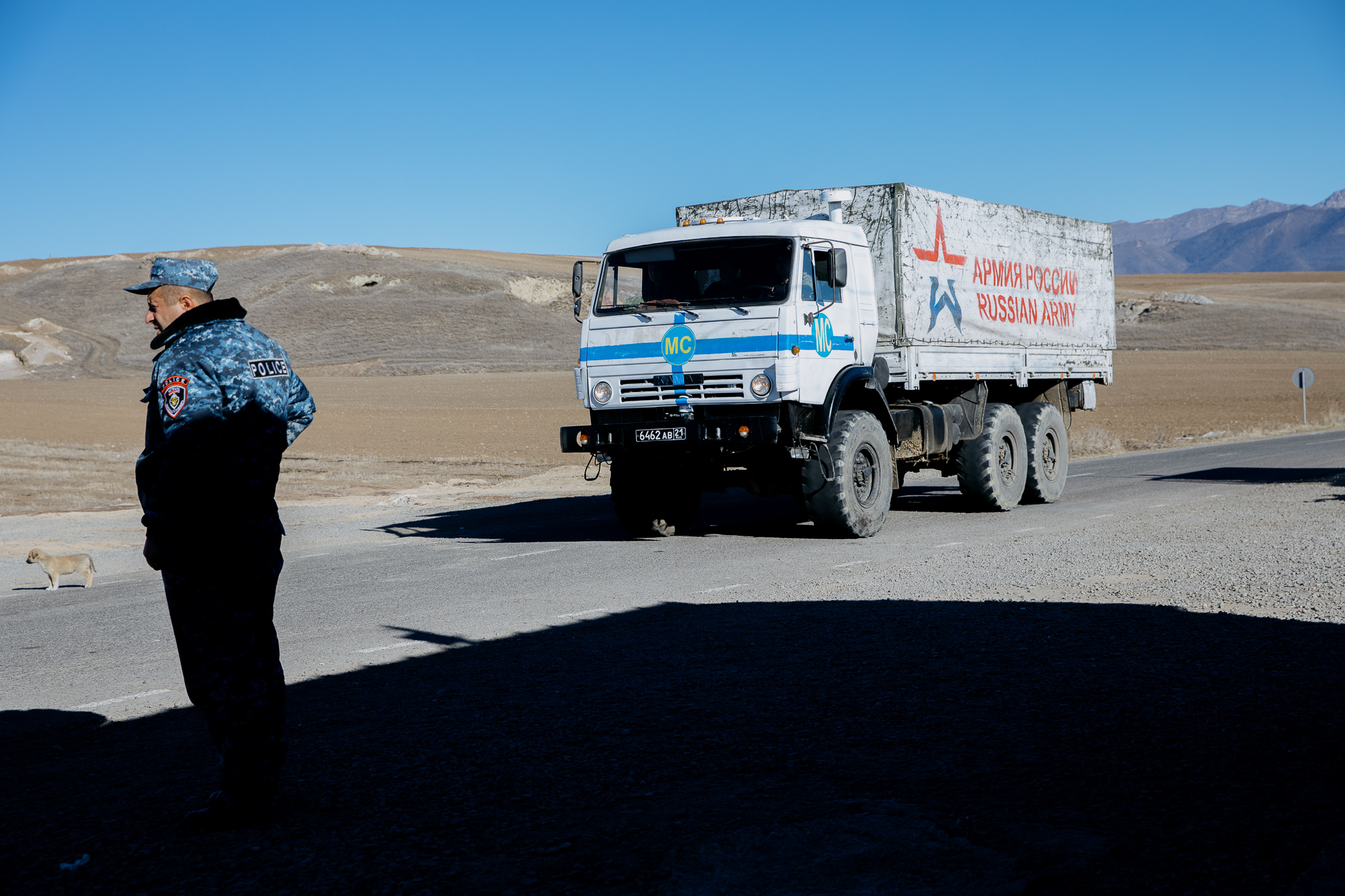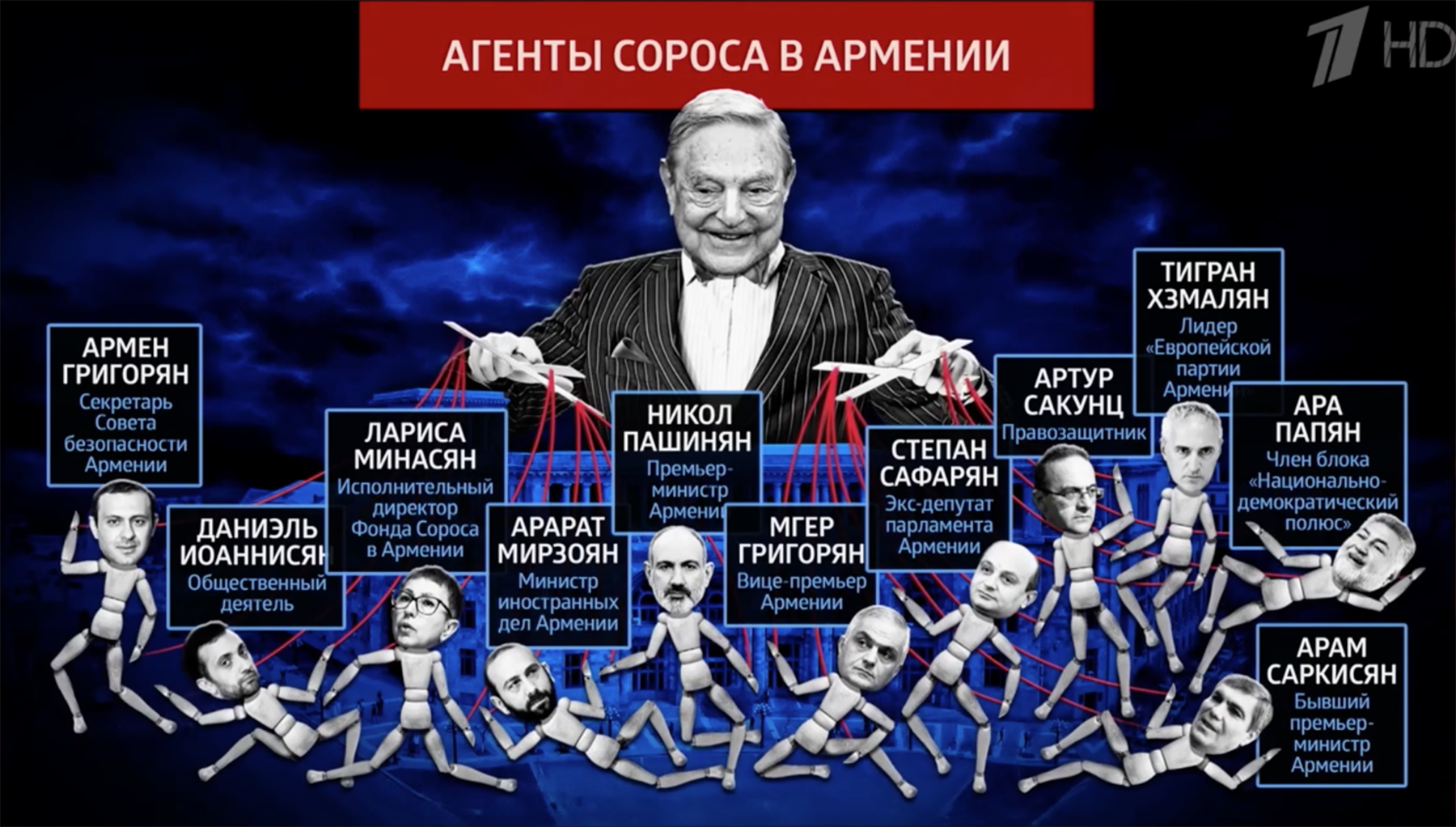
The Armenian government has summoned the Russian ambassador to the country over comments by Russian state TV criticising the Armenian government. Moscow summoned the Armenian charge d’affaires to Russia soon after.
On Monday, Russia’s Channel One broadcasted an hour-long programme titled: ‘Nikol Pashinyan: a harbinger of trouble’. The show mainly focused on Prime Minister Nikol Pashinyan and his government and how he came to power in street protests in 2018. Experts invited on the show labelled this a ‘colour revolution’ sponsored by the West.
Armenia’s Foreign Ministry summoned ambassador Sergey Kopyrkin on Tuesday over what they called ‘offensive and absolutely unacceptable statements addressed to high-ranking officials of the Republic of Armenia’.
The following day, Russian authorities responded by summoning the Armenian charge d’affaires in Moscow. Russian Foreign Ministry spokesperson Maria Zakharova said on Thursday that ‘his attention was drawn to the most odious publications [in Armenian media] addressed to the Russian leadership, Russian diplomats, and [Russian] peacekeepers who risk their lives and sacrifice for the security of the Armenian people’.
The Channel One programme aired soon after Pashinyan made a speech in the European Parliament in which he criticised the ‘inactivity’ of the Russian peacekeepers in Nagorno-Karabakh and the ‘inaction’ of Armenia’s supposed security allies. He also criticised what he said was an attempt to use war and humanitarian emergency as well as external security threats to Armenia ‘to subvert Armenia’s democracy and sovereignty’.

Russian state press agency TASS cited a high-ranking Russian official as condemning Pashinyan’s speech as ‘absolutely irresponsible and provocative, especially with regard to Russia and Russia-Armenian relations’. The official also reportedly claimed that Moscow saw attempts to turn Armenia into ‘Ukraine number 3’, with Moldova being ‘Ukraine number 2’.
The diplomatic tit-for-tat is the latest incident in rapidly deteriorating relations between the two countries.
In a recent interview with The Wall Street Journal, Pashinyan said that Armenia had ‘not seen the advantages’ of Russia’s military presence in the country, though he said there were not currently discussions about expelling Russian troops from their base in Gyumri.
Russian MPs also decided on Tuesday to postpone discussions of a draft law that would recognise Armenian driving licenses for the purpose of entrepreneurial and work activities.
State Duma Chair Vyacheslav Volodin said this was because the law relied on the Russian language receiving official status in Armenia.
Russia has frequently used economic leverage to show its discontent. At the beginning of October, before the Armenian parliament voted to ratify the Rome Statute, Armenian media reported that 60 Armenian lorries exporting brandy to Russia were being held up at the Georgian–Russian border.
Another round of Russian state propaganda
The programme on Russian state-owned TV on Monday caused anger in Armenia. One graphic aired in the show called ‘Agents of Soros’ was widely circulated on social media. It depicted Prime Minister Nikol Pashinyan, Foreign Minister Ararat Mirzoyan, Deputy Prime Minister Mher Grigoryan, Secretary of the Security Council Armen Grigoryan and others, including civil society figures, as puppets of Hungarian-American billionaire and philanthropist George Soros.

Armenian fact-checking site FIP.am debunked several of the false claims made in the programme. For instance, they pointed out that Pashinyan had never made public statements such as, ‘Artsakh is a headache’ and that ‘by handing it over, Armenia will get a road to Azerbaijan, Turkey, and Iran’, as the programme claimed.
In another case, Alexander Aratamonov, one of the experts on the show, claimed that there are ‘six Azerbaijani villages’ in Syunik, which Baku demands. However, Baku’s claims of ‘six occupied villages’ refer to the exclaves located in the Tavush Province.
The show’s host claimed that before the September 2022 Azerbaijani attack on Armenia, Pashinyan brought NATO troops to Armenia. However, there are no NATO troops in Armenia, and the EU’s civilian observation mission, which the host labelled a NATO contingent, came to Armenia after the Azerbaijani offensive in the absence of aid from the Russian-led CSTO.
In another publication, FIP.am claimed that at least two experts invited to the show regularly circulate Azerbaijani state narratives in Russia.
Among the show’s guests was Andranik Tevanyan, an ally of Armenia’s second president, Robert Kocharyan. Tevanyan was one of the leaders of the protests in Yerevan following the Azerbaijani offensive in Nagorno-Karabakh in September.
The Atlantic Council’s DFRLab noted at the height of the public unrest in September that pro-Kremlin actors on Telegram were fueling public anger by spreading misinformation and calls to topple the government.









